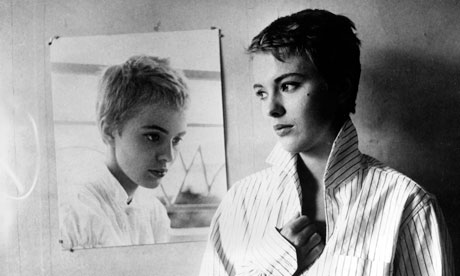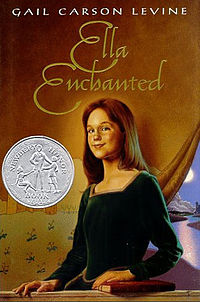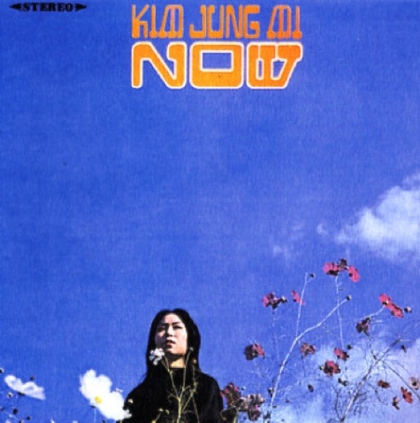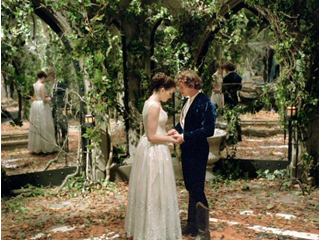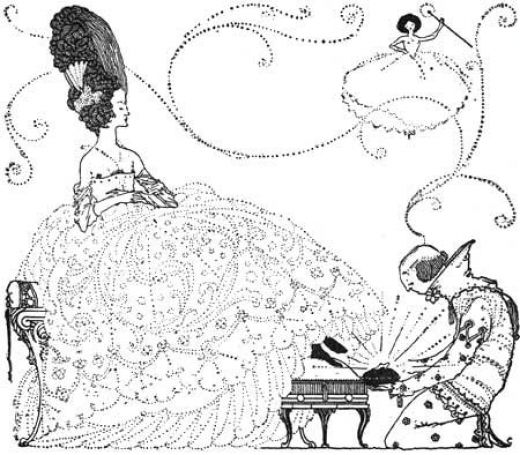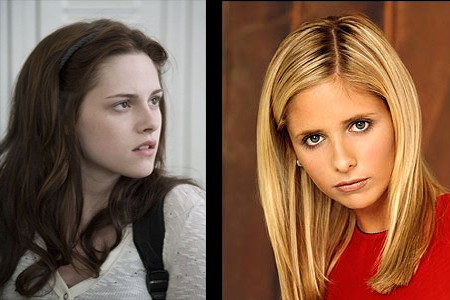This was first posted on Splice Today. I just mentioned it on this really long thread, so thought I’d reproduce it here.
______________________
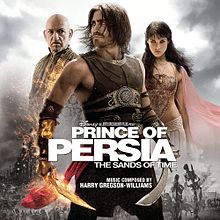 Prince of Persia: Sands of Time, the argument will go. It’s a derivative, malformed mess, with a plot that manages to be both preposterously ludicrous and tediously predictable. Jake Gyllenhaal is largely wasted as Prince Dastin, a role which requires him to alternate between looking raffishly earnest and earnestly raffish. Gemma Arteton as Princess Tamina does her best Princess Leia impersonation, and succeeds in demonstrating that she can be significantly less sexy than Carrie Fisher even while having a much larger chest. The super-special mystic knife appears to have been purchased from Toys R’Us, and a troop of dark riders have been shamelessly borrowed from the Lord of the Rings films. Except these Dark Riders aren’t called Nazgul. They’re called “Hashashins.” Which, in ancient Persian means, “Assassins who lisp.”
Prince of Persia: Sands of Time, the argument will go. It’s a derivative, malformed mess, with a plot that manages to be both preposterously ludicrous and tediously predictable. Jake Gyllenhaal is largely wasted as Prince Dastin, a role which requires him to alternate between looking raffishly earnest and earnestly raffish. Gemma Arteton as Princess Tamina does her best Princess Leia impersonation, and succeeds in demonstrating that she can be significantly less sexy than Carrie Fisher even while having a much larger chest. The super-special mystic knife appears to have been purchased from Toys R’Us, and a troop of dark riders have been shamelessly borrowed from the Lord of the Rings films. Except these Dark Riders aren’t called Nazgul. They’re called “Hashashins.” Which, in ancient Persian means, “Assassins who lisp.”
So, okay, it’s true — this is a big, dumb, Hollywood action-adventure vehicle with nothing in its head except things blowing up, swordfights, and pretty actors staring soulfully into each others eyes for a moment before more things blow up.
But you know what? I’m okay with that. Prince of Persia has no lofty ambitions and virtually no pretensions; it isn’t an ironically clever action movie, or a thoughtful action movie, or anything but a breezy summer stunt fest. And within those boundaries, it’s really surprisingly decent. Gyllenhaal has charisma to burn, and he leaps from battle to dashing close-up to battle with winning ease. He has no chemistry with Gemma Arteton, but then, they hardly have any love scenes. And really, even if she is more pert than smoldering, and has not a single line worth reciting — well, let’s just say I’ve been waiting to see more of her ever since her head-turning walk-on in Quantum of Solace. The sword fights are well choreographed, and many of the set pieces are entertaining and creative. One of the highlights is early in the film, when Dastin scales a wall using crossbow bolts fired just ahead of his ascent by his retainers.
Moreover, the writing is surprisingly good, in a workmanlike way. The opening scene explains Prince Dastin’s background (he’s a street urchin adopted by the king) in a burst of action-filled exposition that’s as professionally efficient an origin story as I think I’ve seen on film. The close relationship between the king (Ronald Pickup) and Dastin is only developed in a couple of scenes, but Gyllenhaal sells it; he looks genuinely stricken at his father’s death, and you feel throughout the film that he is motivated by the king’s memory. The dialogue for ostrich-racer, small time thug, and anti-tax activist Sheik Amar (Alfred Molina) is even witty. A heartfelt lament in which Amar declares his determination to keep a close watch on a suicidal ostrich lest she “do something stupid” is, for example, laugh-out-loud funny — and his feeling embrace of said suicidal ostrich is certainly the movie’s romantic high point.
I think my favorite part of the film, though, is the ending. [Warning! Spoilers follow!]
Prince of Persia’s denouement involves the mystical turning back of the clock practically to the film’s beginning, effectively erasing the entire action of the movie. Dastin foils the villain even before his plot can begin, and every meaningful emotional moment of the narrative is ruthlessly disappeared. The king doesn’t die. Dastin’s brothers, both of whom were murdered in his arms at a moment of reconciliation, don’t die either. The honorable black sidekick doesn’t inexplicably sacrifice his life for the stupid lighter-skinned peoples. Sheik Amar doesn’t bow to the remorseless logic of lovable rogues and show an inner nobility. The Princess doesn’t fall in love with Dastin, nor does she sacrifice herself for him and the world (though Dastin gets to court and marry her anyway). In short, nothing happens. You get the happy ending without any of the events leading to it.
Which seems perfectly reasonable. I mean, I liked the king; I don’t want him to get killed. The brothers were fun too; I don’t need to see them offed. And lord knows I really, really don’t want to see the honorable black sidekick do that thing that all the black sidekicks have to do. Why not just wipe it out? It’s all just a fluffy fantasy anyway. It kept me cheerfully entertained for two hours. It wasn’t real, it had nothing to say, it’s over and there are no consequences to speak of. Would that all Hollywood action movies were equally forthright.

